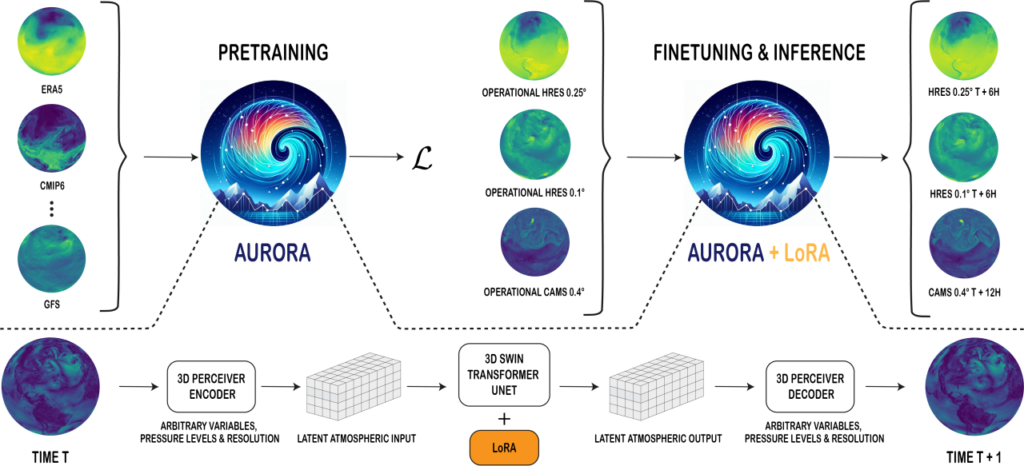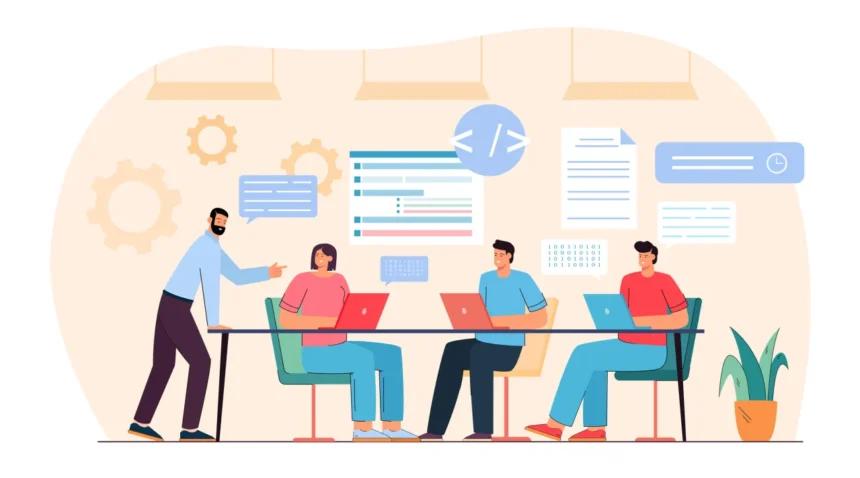This week in the AI world, two startups focused on AI-driven coding tools—Magic and Codeium—caught the attention of venture capitalists in a big way, raising nearly half a billion dollars combined. These funding rounds are notable even by AI industry standards, particularly because Magic has yet to launch a product or generate any revenue.
So, what’s fueling this surge of investor enthusiasm? The answer lies in the complex and costly nature of coding itself. There’s growing demand from both companies and individual developers for solutions that can streamline the often tedious and time-consuming aspects of coding.
The High Cost of Coding Maintenance
Coding is far from a straightforward task, and it comes with a hefty price tag. According to one survey, the average developer spends nearly 20% of their workweek maintaining existing code instead of writing new code. In a separate study, companies reported that excessive code maintenance—such as addressing technical debt and fixing poorly performing code—costs them a staggering $85 billion per year in lost opportunities.
This is where AI coding tools come into play. Many developers and firms believe these tools can help mitigate the burden of code maintenance. Consultants seem to agree; in a 2023 report, McKinsey analysts noted that AI coding tools could enable developers to write new code in half the time and optimize existing code in about two-thirds the time.
The Limitations of AI in Coding
However, AI is not a magic bullet. The McKinsey report also found that certain complex tasks—especially those requiring deep familiarity with specific programming frameworks—didn’t benefit as much from AI assistance. In fact, for some tasks, junior developers took longer to finish with AI tools than without them.
The report emphasized that these AI tools are best used to augment developers, not replace them. “Participant feedback indicates that developers actively iterated with the tools to achieve [high] quality,” the co-authors wrote, highlighting that experience is still key. “Ultimately, to maintain code quality, developers need to understand the attributes that make up quality code and prompt the tool for the right outputs.”
Security and IP Concerns
AI coding tools are also not without their challenges, particularly in the areas of security and intellectual property (IP). Some analyses have shown that these tools have led to an increase in mistaken code being pushed to codebases. Moreover, there’s a significant risk of liability when AI tools trained on copyrighted code inadvertently reproduce that code when prompted in a specific way.
Developer Adoption and Market Growth
Despite these concerns, enthusiasm for AI coding tools remains high among developers—and their employers. A 2024 GitHub poll revealed that an overwhelming 97% of developers have adopted AI tools in some form. Furthermore, between 59% and 88% of companies in the same poll reported that they are either encouraging or allowing the use of assistive programming tools.
Given this widespread adoption, it’s no surprise that the AI coding tools market could be worth as much as $27 billion by 2032, according to Polaris Research. Gartner predicts that by 2028, 75% of enterprise software developers will be using AI coding assistants.
The market is already heating up. Generative AI coding startups like Cognition, Poolside, and Anysphere have secured substantial funding rounds over the past year, and GitHub’s AI coding tool, Copilot, now boasts over 1.8 million paying users. The productivity gains these tools offer have been compelling enough to convince investors and customers to overlook their flaws—for now. But the real question is how long this trend will continue.
Other Noteworthy News in AI
“Emotion AI” Gains Traction: Julie explores how VCs and businesses are becoming increasingly interested in “emotion AI,” a more advanced form of sentiment analysis, and the potential ethical concerns it raises.
The Struggles of Home Robots: Brian delves into why many home robotics projects have failed, citing issues related to pricing, functionality, and overall effectiveness.
Amazon Hires Covariant Founders: In the robotics realm, Amazon recently hired the founders of the startup Covariant, along with “about a quarter” of the company’s employees. The tech giant also secured a non-exclusive license to use Covariant’s AI robotics models.
NightCafe’s Resilience: I’ve profiled NightCafe, one of the original AI-powered image generators and a marketplace for AI-generated content. Despite challenges with content moderation, NightCafe continues to thrive.
Midjourney Expands into Hardware: NightCafe’s competitor, Midjourney, announced its entry into the hardware space. The company’s new hardware team will be based in San Francisco, according to a post on X.
California’s SB 1047 Passes: The California legislature has passed AI-related bill SB 1047. Max discusses why some stakeholders are urging the governor not to sign it into law.
Google’s Election Safeguards: As the U.S. presidential election approaches, Google is implementing new safeguards for its generative AI apps and services. The company announced that most of its AI products will not respond to election-related queries.
Apple and Nvidia Eye OpenAI Investment: Nvidia and Apple are reportedly in discussions to participate in OpenAI’s upcoming fundraising round, which could value the ChatGPT creator at $100 billion.
Research Paper of the Week: AI’s Role in Game Development
Researchers from Tel Aviv University and Google’s AI R&D division, DeepMind, have introduced GameNGen, an AI system capable of simulating the game Doom at up to 20 frames per second. Trained on extensive footage of Doom gameplay, the model can predict the next “gaming state” as a player controls the character in the simulation, creating a game in real time.
While GameNGen isn’t the first AI model to simulate games—others include OpenAI’s Sora and Google’s Genie—it’s among the most advanced in terms of performance. However, it still faces significant limitations, such as graphical glitches and an inability to remember more than three seconds of gameplay. While it’s not ready to create a functional game just yet, GameNGen represents a significant step toward new types of procedurally generated games.
Model of the Week: Aurora Takes on Weather Forecasting
AI is rapidly transforming weather forecasting, from predicting rain duration to providing century-long climate predictions. Aurora, a new model from Microsoft’s AI research team, is one of the latest entrants in this field. Trained on various weather and climate datasets, Aurora can be fine-tuned for specific forecasting tasks with minimal data, according to Microsoft.

Aurora has demonstrated impressive performance, producing five-day global air pollution forecasts and ten-day high-resolution weather forecasts in under a minute. However, like other AI models, Aurora isn’t perfect and can make errors. Microsoft warns that the model shouldn’t be relied upon for critical business or operational planning.
Grab Bag: Layoffs at Scale AI
Last week, reports emerged that Scale AI, a startup specializing in AI data labeling, laid off a significant number of annotators—those responsible for labeling the training datasets used in AI model development.
Although there hasn’t been an official announcement, one former employee told Inc. that the number of layoffs could be in the hundreds, a claim that Scale AI disputes. Most of these annotators aren’t direct employees of Scale AI but are hired through subsidiaries or third-party firms, which limits their job security. The company has stated that less than 65 people were laid off in the U.S. and that the affected workers were employed by a company called HireArt, which provided severance and COBRA benefits through the end of the month.
The situation remains somewhat murky, and we’re continuing to investigate. If you are a former Scale AI employee or contractor who was recently laid off, feel free to reach out to us.
This week’s developments highlight the ever-evolving landscape of AI, from the excitement around AI coding tools to the ethical dilemmas posed by emotion AI. As these technologies continue to advance, so too will the questions—and opportunities—they bring.










